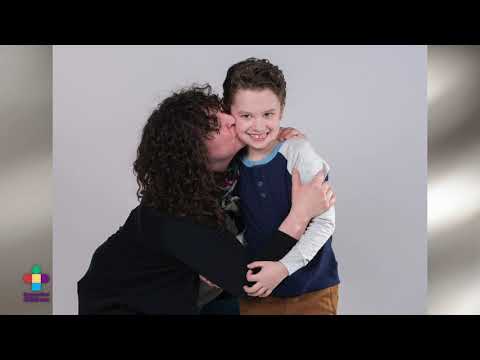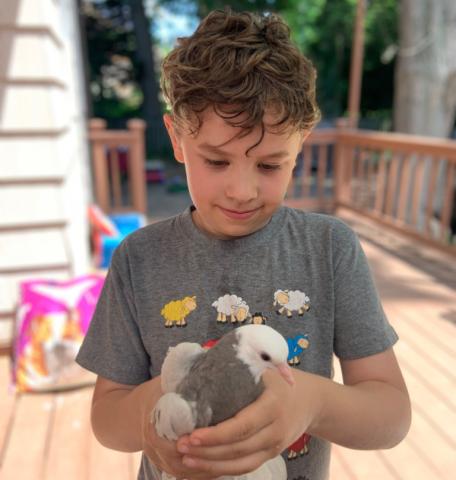“A no-sodium diet is rough for anyone,” says Jessica. “But for a 3-year-old who loves goldfish crackers? It was really rough.”
Guthrie’s team at Connecticut Children’s made it a little easier, by helping Guthrie understand why.
“I am always impressed by how everyone at Connecticut Children’s speaks directly with the kids in a language they can understand,” says Jessica. “They made Guthrie part of the conversation. I remember Guthrie asking his preschool friends, ‘How much sodium is in your goldfish crackers?’ His friends didn’t even know what sodium was!”
> Related: How to Pack a Go-Bag for Your Child’s Unexpected ED or Urgent Care Visits
“The nurses, the dietitians, the doctors are all fantastic”
For about a year and a half, Guthrie saw the nephrology team once a twice or month, and came to Connecticut Children’s weekly to have his blood drawn. Nurse Caitlin Greenslade, BSN, RN, would push baby Seeger around in his stroller so Jessica could focus on supporting Guthrie, who dreaded anything that involved needles. Jessica also brought Guthrie to a class at Connecticut Children’s Raytheon Technologies Family Resource Center for help dealing with needlephobia.
“Sometimes I forget how overwhelming it was at the beginning,” says Jessica. “We could’ve gone anywhere for Guthrie’s bloodwork, but we came to Connecticut Children’s. Everyone is really knowledgeable about how to treat children. Everyone we interacted with – the nurses, the dietitians, the doctors – were all fantastic.”
Nephrotic syndrome can be challenging to manage. Guthrie’s symptoms would improve, life would briefly go back to normal, and then the symptoms and swelling would return. He had 13 relapses in 12 months. His Connecticut Children’s team kept trying new approaches, determined to find a plan that worked long-term.
When Guthrie was nearing his 5th birthday, they tried a new medication, an immune suppressor. And at last, that did the trick.
> Related: Ask a Pediatrician: How Do You Make Sure Your Patients Feel Safe and Comfortable During COVID-19?



